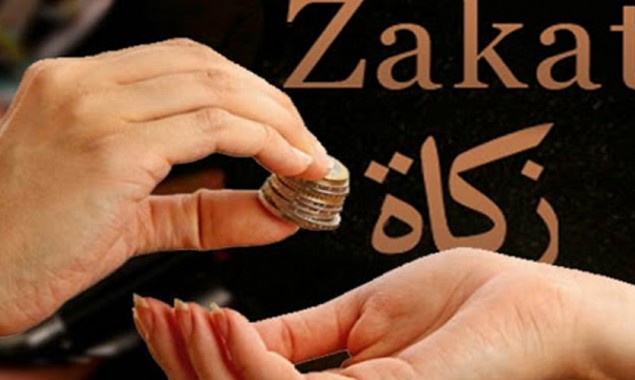
Zakat is the fourth pillar of Islam. Zakat is the purification of the wealth you possess. The purpose of almsgiving is to help the needy with suitable Zakat calculations from all the assets.
Zakat is given in the Holy month of Ramadan, the month in which we do not only purify our souls but also purify our wealth.
As the holy month of Ramadan is near, people have concerns about how the Zakat should be paid this year. Here is the complete guide about Zakat calculations, liabilities, and other queries.
Am I eligible to give Zakat?
A person is eligible to pay Zakat if the total of his/her assets is worth more than 7.5 tola/3 ounces/87.48 grams of gold, or 52.5 tota/21 ounces/612.36 grams of silver for a full lunar year. However, the Nisab should be converted to the local currency rate. If a person has money equals to the Nisaab, he/she can pay Zakat.
Rates and currency values vary in different countries. Here, we are using Pakistani Rupees (PKR) to guide you.
Zakat is calculated as per the current rates of gold and silver in the country. For example, take the price of one tola gold and multiply it with 7.5. This will be the worth you should own to give Zakat.
Or, if you have silver, take the price of one tola silver and multiply it with 52.5. you will get the amount.
(Per tola gold) * 7.5 = amount you should have
(per tola silver) * 52.5= amount you should have
Which Nisab should you prefer for Zakat-Gold or silver?
Experts say that if you have assets in gold, you should consider it as a Nisab. However, if you have assets in the form of gold, silver, cash or mix, you should prefer silver as a Nisab.
Calculating Zakat for 2020
Note that Zakat is given on savings and access assets. Basic assets including house, clothes, car, appliances, and other items of daily use are not included. Here is the complete guide.
Assets you should include in Zakat
- Cash, whether it’s at home or in the bank
- Foreign currency that you own (valued at the conversion rate of the local currency)
- Savings set aside for a specific purpose, such as Hajj, marriage, buying a car, etc.
- The value of all the gold and silver that you own in your local currency
- The market price value of any shares that you might own if you wish to sell them
- The dividend received from shares if you are not selling them in the near future
- Money that is owed to you and will be repaid in the near future
- Business owners should also include the balance sheet value of the stocks that they own
- Rental property owners should tabulate any saved rental income as well
- If a property is bought as an investment to be sold, then its market value is to be included
- Anticipated profit on the sale of an investment asset in the near future
Assets to exclude
- The total amount of pending utility as well as credit card bills
- Any pending amount of rent you owe to your landlord
- The outstanding amount on any personal loans or mortgages that you have taken
- The value of a property that you’ve given on rent to your tenant
- Any amount that is due to your employees as their salary
Zakat calculations for assets and liabilities
If you want to know whether you are eligible to pay Zakat or not, here is a simple formula.
At first, calculate the full assets you have for a lunar year by adding them all.
After that, sum up your immediate liabilities to remove it from your total asset
After that, subtract the liabilities from your total assets. The result will be your net worth on which Zakat is applicable.
Full assets – Zakat liabilities = Net worth on which Zakat is applicable
The rate for Zakat calculations
Experts say that the rate of Zakat applicable is 2.5% or the 40th portion of your total wealth for one lunar year. The net worth you have calculated before is multiplied with 2.5% of the total wealth. The answer will be the amount of Zakat to be paid.
Net worth * 2.5% = Zakat amount.
Net Worth for Zakat * 0.025 = Zakat amount
Net worth/40 = Zakat to be paid.
Recipients of Zakat
These are the people to whom you can give Zakat, as per the laws.
- Fuqaraa[poor and low-income individuals]
- Masakeen[needy Muslims who lack even the most basic facilities]
- Aamileen[officials appointed by an Islamic State for the collection of Zakat]
- Muallafat-ul-Quloob[new underprivileged Muslims to incline their hearts towards Islam even more]
- Ar-Riqaab[slaves and captives, to set them free from their masters]
- Al-Gharimeen[Muslims who are in debt]
- Fi Sabeelillah[needy Muslims who are away from home to perform good deeds, like Hajj or Jihaad]
- Ibn-us-Sabeel[a traveler who is needy for the duration of the journey]
However, it cannot be given to
- The rich
- Non-Muslims
- The family of the Prophet (Peace Be Upon Him)
- Your direct dependents [including your wife, parents, grandparents, children, and grandchildren]
FAQs
Can someone give Zakat to non-dependent family members?
Yes. it can be given to non-dependent family members. Non-dependent family members can be
- Brother
- Sister
- Brother’s son or daughter
- Sister’s son or daughter
- Paternal aunt or uncle
- Maternal aunt or uncle
- Mother-in-law or father-in-law
- Son-in-law or daughter-in-law
Can Zakat be given to family members?
- Zakat can be given to closest relatives and neighbors, and the act is considered Afzal. However, Zakat cannot be given to directly dependent family members including Wife
- Children
- Grandchildren
- Parents
- Grandparents
Can it be given to one recipient only?
Yes, if anyone you know needs full amount, you can give Zakat to that person.
Can Zakat be given in installments?
Yes. But you should give Zakat before the beginning of new lunar year. you have to pay the installments in the same year.
Can Zakat be given more than 2.55 of the net worth?
Yes. You can give more amount than the prescribed 2.5% of the net income.
Does a person have to include the savings in the Zakat he/she has saved for Hajj?
Yes. All savings, including Hajj savings, are included in the total amount a person possesses.
Are future liabilities includedin Zakat calculations?
Yes. Future liabilities are not excluded from Zakat. Only pending liabilities, such as bills, and other expenses that have to be paid but haven’t been paid yet, are to be excluded from Zakat. You cannot exclude the amount of bills from your current net worth.
Is Zakat applicable on personal use items?
No. you have to pay Zakat from the assets excluding your personal use items.
Is Zakat applicable on Future Assets?
No. Zakat is not applicable on future assets. But it is possible only if a person has purchased an asset as an investment with the intention to sell it soon. Or only if the person has definite confirmation regarding the sae of any asset but do have money currently.
Which Nisab should be chosen?
- Gold – If you only have assets and savings in gold.
- Silver – If you have savings and assets in silver or mixed assets, including cash, gold, silver, and other tradable commodities.
Who are Sahib-e-Nisab?
If a person has 7.5 tola/3 ounces/87.48 grams of gold or 52.5 tota/21 ounces/612.36 grams of silver or its cash equivalent for a full lunar year, then you are considered Sahib-e-Nisab and should pay Zakat
Read More News On
Catch all the Pakistan News, Breaking News Event and Latest News Updates on The BOL News
Download The BOL News App to get the Daily News Update & Follow us on Google News.




